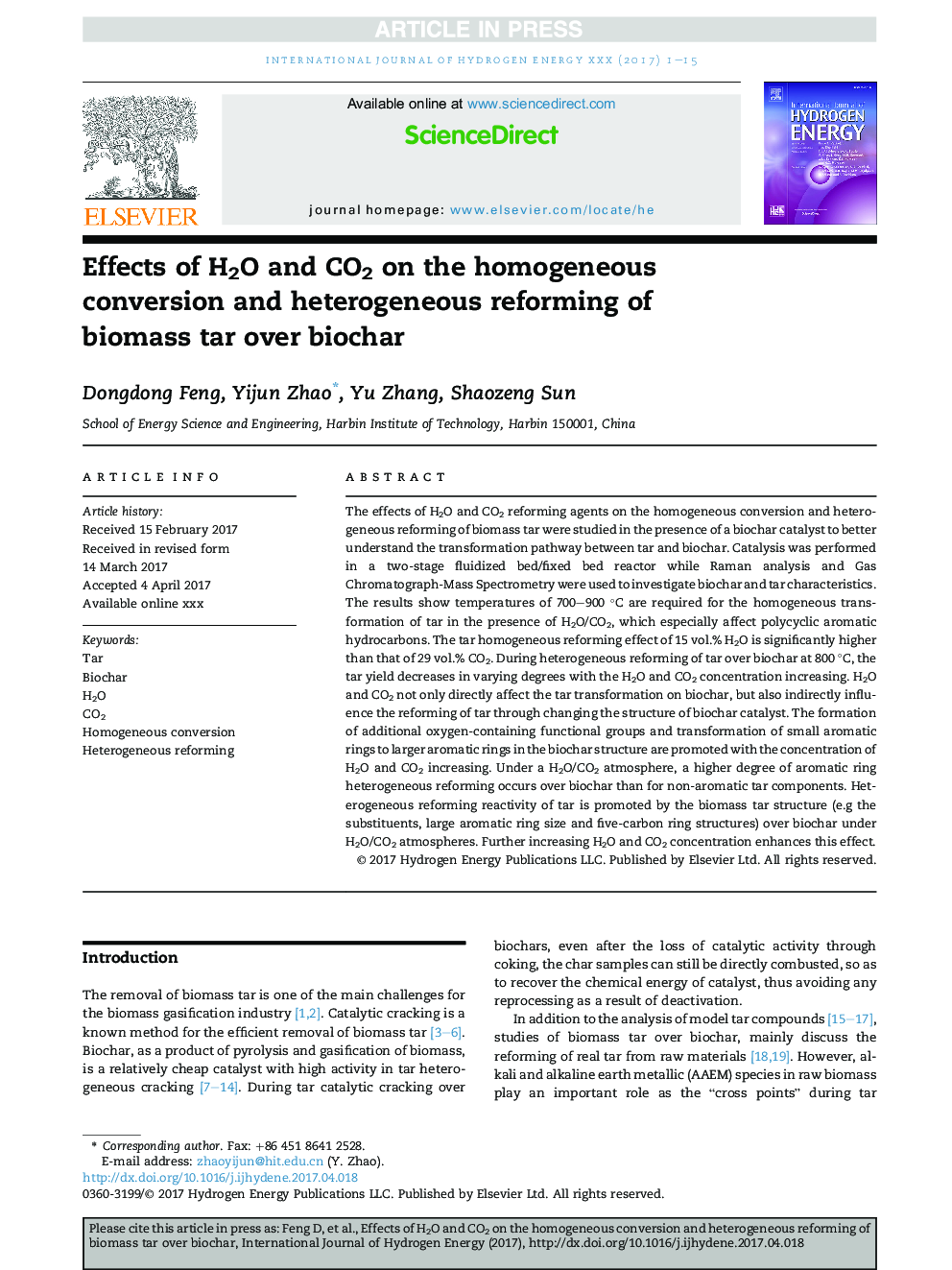| Article ID | Journal | Published Year | Pages | File Type |
|---|---|---|---|---|
| 5147495 | International Journal of Hydrogen Energy | 2017 | 15 Pages |
Abstract
The effects of H2O and CO2 reforming agents on the homogeneous conversion and heterogeneous reforming of biomass tar were studied in the presence of a biochar catalyst to better understand the transformation pathway between tar and biochar. Catalysis was performed in a two-stage fluidized bed/fixed bed reactor while Raman analysis and Gas Chromatograph-Mass Spectrometry were used to investigate biochar and tar characteristics. The results show temperatures of 700-900 °C are required for the homogeneous transformation of tar in the presence of H2O/CO2, which especially affect polycyclic aromatic hydrocarbons. The tar homogeneous reforming effect of 15 vol.% H2O is significantly higher than that of 29 vol.% CO2. During heterogeneous reforming of tar over biochar at 800 °C, the tar yield decreases in varying degrees with the H2O and CO2 concentration increasing. H2O and CO2 not only directly affect the tar transformation on biochar, but also indirectly influence the reforming of tar through changing the structure of biochar catalyst. The formation of additional oxygen-containing functional groups and transformation of small aromatic rings to larger aromatic rings in the biochar structure are promoted with the concentration of H2O and CO2 increasing. Under a H2O/CO2 atmosphere, a higher degree of aromatic ring heterogeneous reforming occurs over biochar than for non-aromatic tar components. Heterogeneous reforming reactivity of tar is promoted by the biomass tar structure (e.g the substituents, large aromatic ring size and five-carbon ring structures) over biochar under H2O/CO2 atmospheres. Further increasing H2O and CO2 concentration enhances this effect.
Related Topics
Physical Sciences and Engineering
Chemistry
Electrochemistry
Authors
Dongdong Feng, Yijun Zhao, Yu Zhang, Shaozeng Sun,
